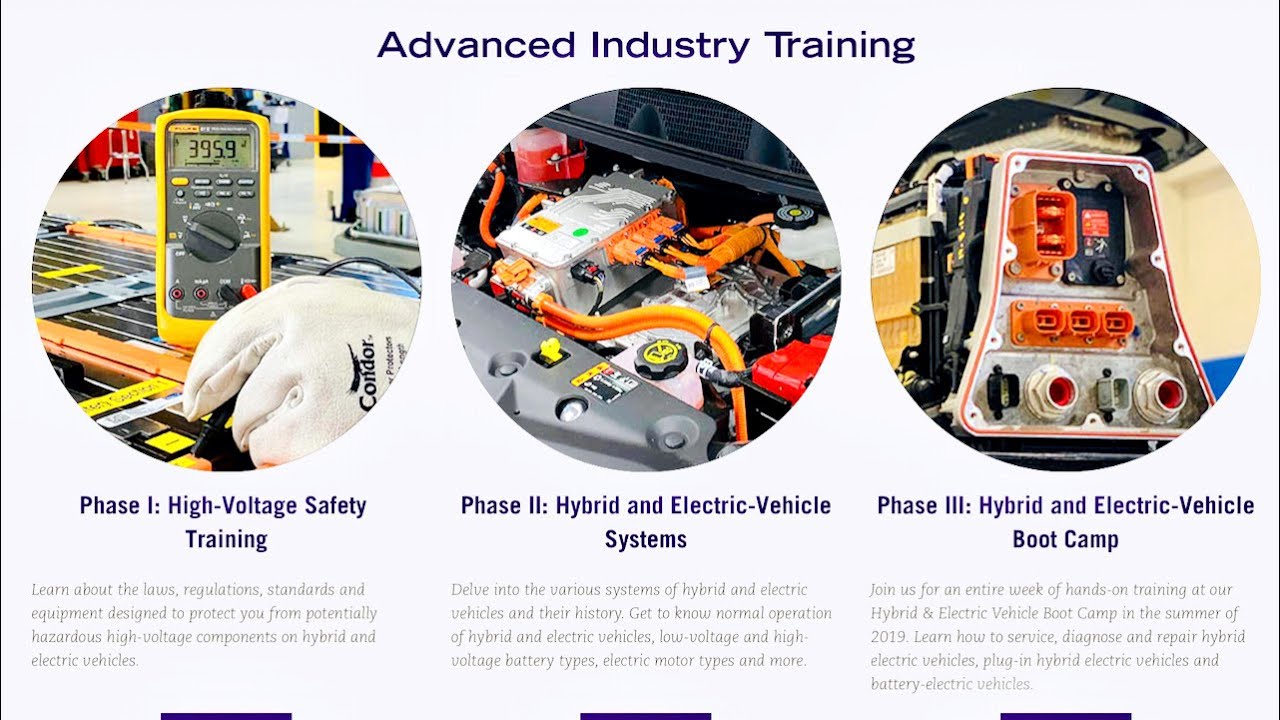
Revving Up for the Future: Peninsula College’s Automotive Program Reboot
In a significant move to align with the rapidly shifting automotive landscape, Peninsula College has relaunched its automotive technology program with an innovative twist. Under the guidance of new instructor Josh Taylor, students are stepping into a modern learning environment that prioritizes electric vehicle (EV) diagnostics and repair, a crucial skill set as we ride the wave of the electric revolution.
 Students engaged in hands-on electric vehicle training.
Students engaged in hands-on electric vehicle training.
A Timely Revival
The program had faced challenges over the past few years, with dwindling enrollment seeing its decline since 2019. The initial proposition from the college was to rethink the automotive curriculum entirely, aiming not just to revive the program but to offer relevant skills that meet employers’ current demands. Committee discussions revealed that businesses preferred shorter, inclusive certificate programs rather than lengthy degrees. Their urgent need? Graduates who could quickly diagnose issues and possess a solid grasp of electronics.
For those entering the field, getting the right educational foundation can be the difference between success and stagnation. With approximately 1.6 million EVs sold in the U.S. in 2023, marking a 60% increase from the previous year, it is more pertinent than ever for students to have a blend of traditional mechanical training alongside cutting-edge electric vehicle skills.
Cutting-Edge Investments
Pioneering into the electric vehicle realm required financial backing. With the Peninsula College Foundation contributing more than $300,000 and an additional $150,000 from the Washington State Board for Community and Technical Colleges, they’ve significantly revamped the program. New acquisitions include an electric Volkswagen IQ.4 and a hybrid Toyota Prius, as well as essential tools designed to train students on EV safety and functionality.
Engaging the Garage
The workshop setting is transformative; students like Brian Selk, who enrolled after having previously taken automotive classes, appreciate the streamlined path to a certificate, reducing their educational financial burden. “Two quarters versus two years? It’s a no-brainer,” he remarked, highlighting how tailored programs are responsive to contemporary learning preferences.
 Students learn with specialized automotive tools and equipment.
Students learn with specialized automotive tools and equipment.
Bridging the Gap
The college’s program doesn’t merely skim the surface of automotive education. It promises a well-rounded approach that incorporates both conventional mechanics and modern electric vehicle training. This dual focus prepares students to meet diverse industry needs where traditional combustion engines still dominate alongside an influx of electric vehicles.
Taylor, who transitioned from a notable career at Peace Vans where he specialized in converting gas engines to electric, brings a wealth of knowledge directly to the students, emphasizing not only technical skills but also inspiring stories from the field.
“We want to equip students for the challenges they’ll face in the real world, balancing both the legacy systems and tomorrow’s innovations,” Taylor shared.
What’s Next?
As Peninsula College forges ahead, aspirational ideas like developing specialized certificates geared towards Automotive Service Excellence (ASE) credentials are already in discussion. This forward-thinking approach encapsulates the college’s dedication to cultivating job-ready graduates equipped to thrive in a rapidly evolving industry.
In a world where electric vehicles are becoming standard rather than a novelty, educational institutions play a pivotal role in molding the next generation of automotive technicians. The innovation and foresight shown by Peninsula College signal not merely a revival of a program, but an awakening of the local automotive workforce to the possibilities ahead.
 The intersections of innovation in automotive technology await.
The intersections of innovation in automotive technology await.
In wrapping up my thoughts, there’s an unmistakable excitement surrounding these developments in automotive education. It seems not only a correct strategic pivot for the college but also a necessary evolution to stay relevant in today’s tech-driven world. The single-minded pursuit of future-ready professionals marks an optimistic turn for education entwined with industry needs. It won’t be long before locations like Peninsula College become hotbeds of innovation and skill cultivation, with students ready to take on the challenges of the automotive world.













